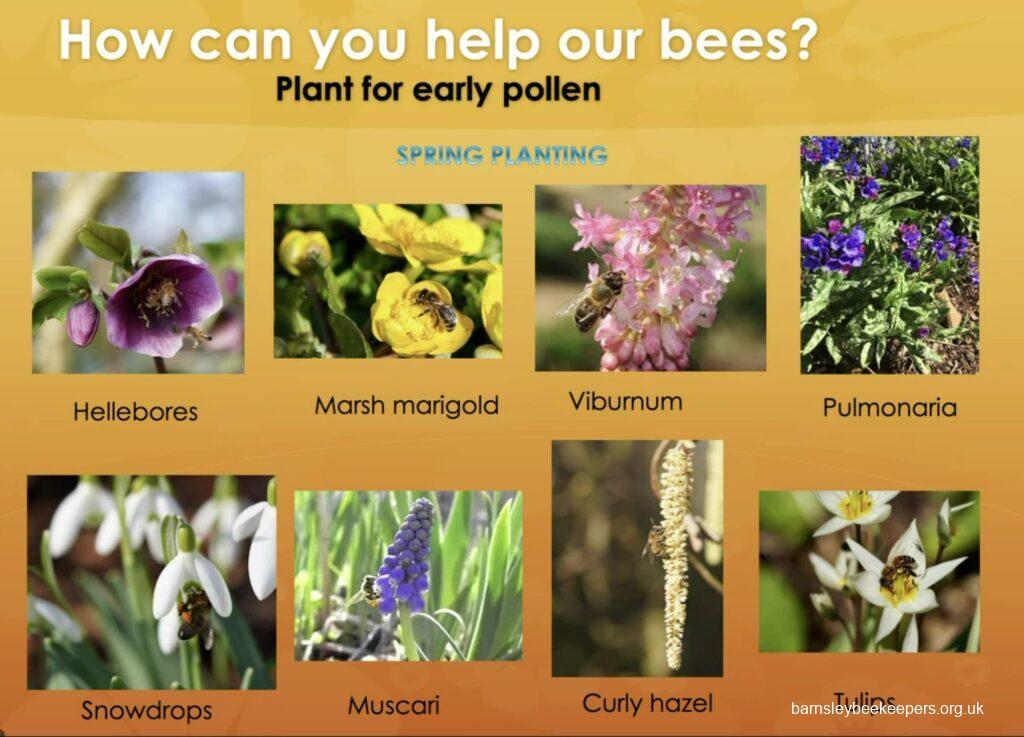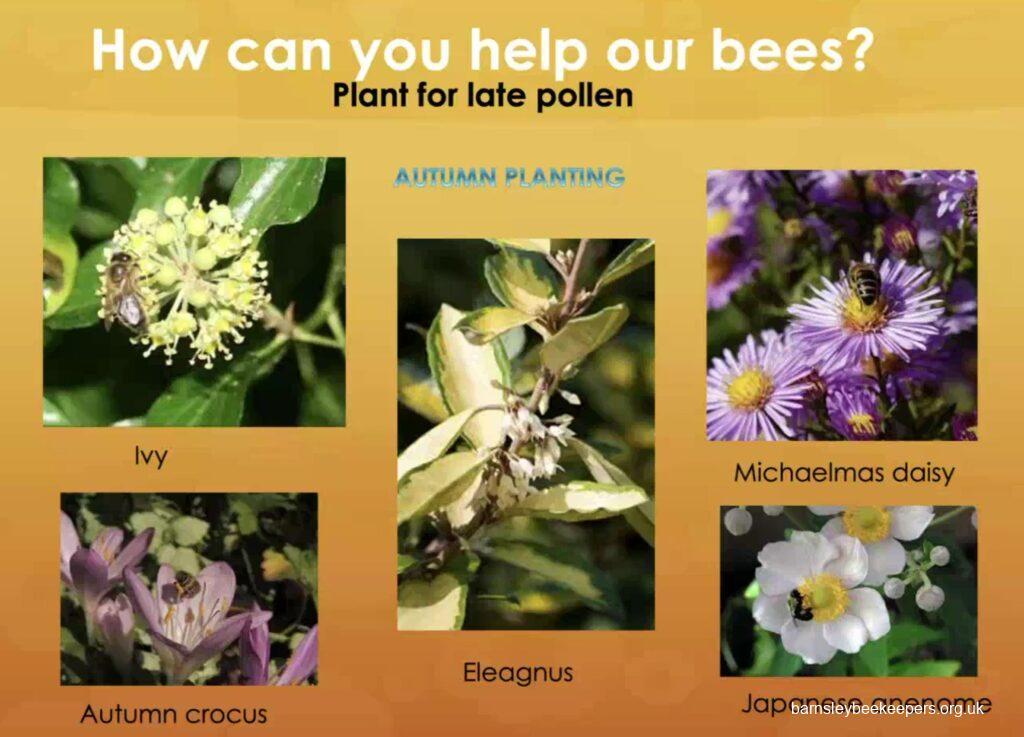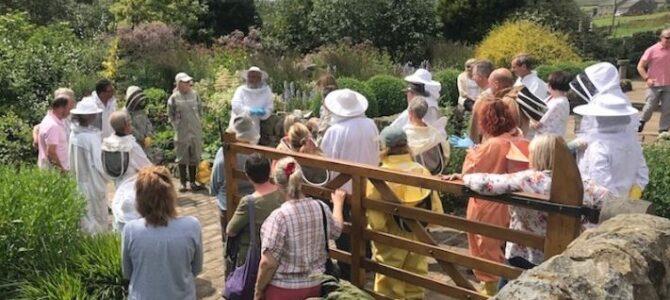Inspired by Elaine Robinson’s Talk to Barnsley Beekeepers Association
Why Pollinator Planting Matters
Pollinators are under threat. Since WWII, we’ve lost:
- 🌼 96% of wildflower meadows
- 🌳 Over 50% of hedgerows
- 🧩 Countless green spaces to paving and monoculture farming
Yet, pollinators contribute around £1 billion a year to UK agriculture.
Every garden, no matter the size, can help. Even a small patch of wildflowers in Barnsley can provide life-saving forage for our bees.
🧑🌾 “If every garden in Barnsley had a wildflower patch the size of a paving slab, it would be incredible!”
🗓 Seasonal Planting for Pollinators
Spring (March–May)

- Willow, Hazel, Curly Hazel
- Pulmonaria, Hellebores, Snowdrops, Muscari, Crocus
- ☀️ Plant in sunny spots for maximum bee visits!
Summer (June–July)
- Oregano, Catmint, Geranium Rozanne, Echium vulgare
- Purple Loosestrife, Heleniums
- 🌿 Plant in drifts. Bees spot massed flowers more easily!
Autumn (August–October)

- 🌿 Ivy, Michaelmas Daisy, Japanese Anemones, Sedum Spectabile
- 🐝 Essential to feed bees raising their winter brood.
🐝 Elaine’s Top 10 Bee-Friendly Plants
- Oregano (Marjoram)
- Catmint (Nepeta)
- Astilbe
- Purple Loosestrife
- Hardy Geraniums
- Eryngium (Sea Holly)
- Agastache (Licorice Plant)
- Astrantia
- Heleniums
- Nasturtiums
🖍 Tip: Bees favour purple, blue, white, orange and yellow flowers.
🌼 Create a Wildflower Patch in Barnsley
Transform your lawn into a wildflower haven!
- ✅ Remove turf for best results
- ✅ Sow fresh, local wildflower seed
- ✅ Include Yellow Rattle (needs frost to germinate)
- ✅ Use low fertility soil
- ✅ Scarify if you can’t lift turf
Even pots work! A pot of wildflowers and grass can still support bees in urban Barnsley.
🌳 Trees and Shrubs Are Powerhouses
Don’t overlook:
- Willow, Rowan, Sycamore, Crab Apple, Wild Cherry
- Viburnum, Cotoneaster, Laburnum
One tree = thousands of flowers!
💧 Don’t Forget Water & Microclimates
- Provide shallow water with stones for bees to safely land
- Plant sun-lovers in south-facing spots
- Shade for woodland plants
- Moisture-lovers by ponds or streams
Observe your garden and notice where the bees go — then plant more there!
🧪 Check Your Honey!
Join the National Honey Monitoring Scheme. You’ll discover exactly what your bees forage locally — fascinating insights for your labels and apiary records!
Final Thoughts
Every square metre of pollinator planting helps.
Together, Barnsley gardeners and beekeepers can make our borough bloom for pollinators, for nature, and for future generations.
🐝 Let’s get planting, Barnsley!
Useful Links:
🌼 Printable Calendar: Planting for Pollinators (Barnsley Edition)
| Season | Focus Plants | Notes |
|---|---|---|
| Spring (Mar–May) | Willow, Hazel, Pulmonaria, Hellebores, Snowdrops, Muscari, Crocus, Curly Hazel | Early pollen is vital for colony build-up. |
| Early Summer (Jun) | Catmint, Geranium Rozanne, Oregano, Echium vulgare | Mass flowering boosts honey stores. |
| High Summer (Jul) | Purple Loosestrife, Heleniums, Borage, Lavenders | Supports honey flow and foraging activity. |
| Late Summer–Autumn (Aug–Oct) | Ivy, Michaelmas Daisy, Japanese Anemones, Sedum Spectabile | Crucial for winter bee nutrition. |
| All Year (Structural) | Fruit trees: Crab Apple, Cherry, Rowan, Cotoneaster, Willow | Trees feed pollinators and provide structure. |
| Bonus Tip | Wildflower meadow with Yellow Rattle | Sow in autumn for frost-assisted germination. |

